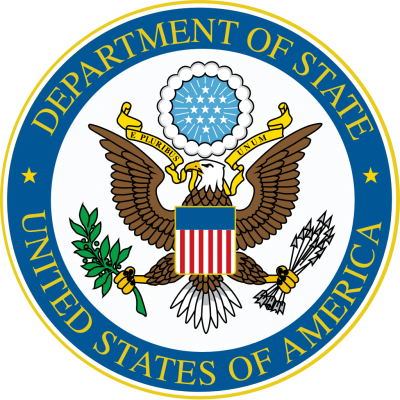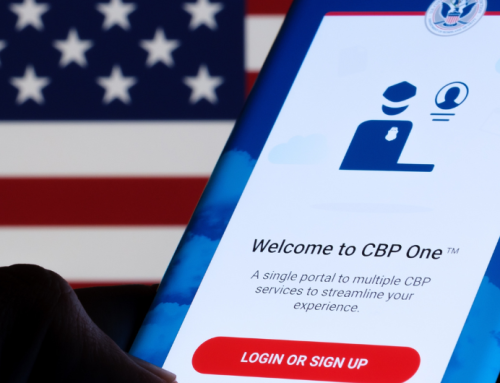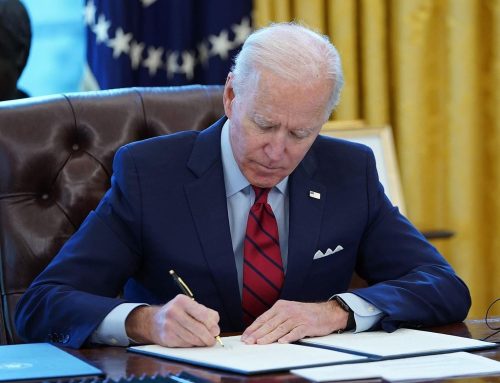USCIS Posts New Asylum Interview Scheduling Bulletin
2018 Updates to Asylum Interview Processes
 As of February 2018, the United States Citizenship and Immigration Services (USCIS) began to prioritize scheduling interviews with asylum applicants who filed their applications from Jan. 8, 2018, or later. These interviews were to be scheduled as soon as possible, though there was no specific time window given. Rather, scheduling was based purely on the volume of applications. However, it generally ranged from one to six months from the time of application.
As of February 2018, the United States Citizenship and Immigration Services (USCIS) began to prioritize scheduling interviews with asylum applicants who filed their applications from Jan. 8, 2018, or later. These interviews were to be scheduled as soon as possible, though there was no specific time window given. Rather, scheduling was based purely on the volume of applications. However, it generally ranged from one to six months from the time of application.
The purpose of this initiative was to reduce the large backlog of asylum applications and speed up legitimate applications while cutting back on the ones that have more tenuous claims. Applications that fall under the latter category are usually those whose applicants have been in the United States for 10 years or longer, exceeding their deadline for an asylum application.
The existing backlog is significant, with some 300,000 applications waiting to be screened, processed, and scheduled for interviews. This has grown due to several factors. The limited budget of the USCIS combined with the high volume of applications has slowed processing times. The USCIS has proposed to more than double its number of caseworkers, bringing the count up to 600. Along with the prioritization of applications starting on Jan. 8, this will make for more efficient processing.
Any applicants who filed for asylum before Jan. 8 may file a request for expedition if they so choose. These requests will be reviewed individually by caseworkers, and approved or denied based on their specific circumstances.
Any applications filed more than 10 years past the applicant’s arrival in the United States, meanwhile, must come before a worker for reevaluation before proceeding to a scheduled interview. This, once again, is to ensure the application was legitimate and not filed simply to prolong the applicant’s stay while being offered work benefits.
In the meantime, immigration courts will be ordered to carefully review renewal proceedings in order to quickly and efficiently process applications that do not qualify for asylum in the United States. This will prevent applicants who do not qualify from staying in the United States for years before they return to their country of birth.
The USCIS also aims to found a Central Vetting and Intake location in Atlanta during the course of 2019. This location will handle initial processing, including vetting for fraud, before passing them on to regional asylum application offices throughout the country for second-stage processing.
While all of these plans are laid in theory, many of them do not yet have definite steps. However, the general changes are to prioritize legitimate applications while expediting illegitimate ones to allow their applicants to leave the country as soon as possible. This process will largely revolve around hiring more staff, allocating resources, and clearing the extensive backlog.
In the meantime, asylum applicants who have been waiting for the chance to be interviewed may find that their circumstances have changed (for example, through marriage). Even while applying for permanent residency, these applicants may choose to continue their asylum case. Or, if they prefer, they may withdraw it altogether and opt instead for permanent residency.
Back in 2016
Affirmative Asylum Scheduling Bulletin
On December 26, 2014, the United States Citizenship and Immigration Services (USCIS) started prioritizing asylum applications for interview scheduling. Based on this, the USCIS publishes Affirmative Asylum Scheduling Bulletin with monthly updates. The purpose of the Bulletin is to give asylum applicants an estimated time that they might expect their asylum interview to be scheduled.
On December 16, 2016, USCIS published the next Affirmative Asylum Scheduling Bulletin which demonstrates how pending affirmative asylum applications are prioritized. The Bulletin is based on the current caseload and volume of applications waiting in line for interview scheduling. According to the Bulletin, the Asylum Offices throughout the country prioritize the asylum interviews as follows:
- Arlington Asylum Office: Asylum applications filed in January 2014 were scheduled to September, October, and November 2016;
- Chicago Asylum Office: Asylum applications filed in November and December 2013, were scheduled to September, October, and November 2016;
- Houston Asylum Office: Asylum applications filed in April and May 2014 were scheduled to September, October, and November 2016;
- Los Angeles Asylum Office: Asylum applications filed in August 2011 were scheduled to September, October, and November 2016;
- Miami Asylum Office: Asylum applications filed in May 2013 were scheduled to September, October, and November 2016;
- Newark Asylum Office: Asylum applications filed in November 2013 were scheduled to September, October, and November 2016;
- New York Asylum Office: Asylum applications filed in September 2014 were scheduled to September, October, and November 2016;
- San Francisco Asylum Office: Asylum applications filed in September, October and November 2014 were scheduled to September, October, and November 2016.
However, despite the Bulletin, the interviews for affirmative asylum applications have been scheduled in a sporadic order. In our asylum cases, we have experienced different order of scheduling for different cases. For example, if you look at the Arlington Asylum Office, you will see that as of November 2016, the office interviewed applicants who filed their cases in January, 2014. However, interview scheduling for our clients in the Arlington Asylum Office has varied.
Even though we have had several interviews scheduled in 2016 for applications filed in 2014, we cannot say this order was consistent. For example, while we have received the interview notice in October 2016 for the application filed in July 2016, we have still had several clients whose applications have been pending since 2014 in the same office and there is still no interview scheduled for those applicants.
Asylum offices also accept expedited interview requests if there are urgent circumstances. We have succeeded in our expedited interview requests on several occasions. Asylum offices accept these requests on a case-by-case basis and the asylum offices have full discretion in making the decision regarding the request.
The asylum applicants, individually or through their lawyer, can also submit an inquiry with the asylum offices regarding the status of their cases. Sometime the asylum offices give standard responses such as the case is still in process and the applicant would be informed about the scheduled interview date through the notice. However, these inquiries are recommended and can give you idea about estimated time to wait for the interview.






